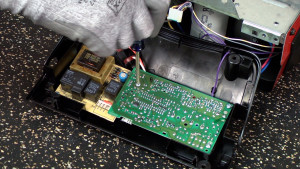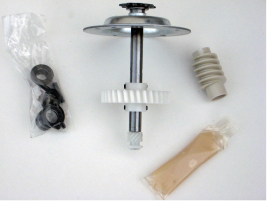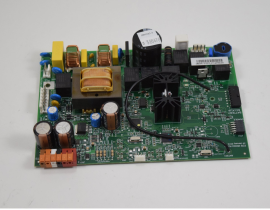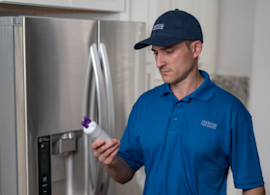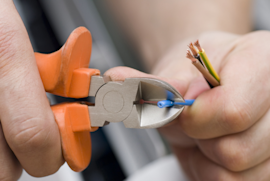Parts needed
Trolley
RPM sensor
Logic board
Motor unit light flashing 5 times
Hi, this is Wayne from Sears PartsDirect. Today we're going to talk about motor and travel problems that prevent your garage door opener from moving the garage door. On this type of motor unit that has a single LED light, the light will flash 5 times to indicate one of these problems: garage door travel is obstructed, garage door opener trolley is obstructed, motor is overheated, motor RPM sensor is defective. On the type with up and down arrows, the up arrow blinks once and the down arrow blinks 5 times to indicate the same set of problems.
Overheating, logic board problems
Your problem could be as simple as an overheated motor. If you've just used your garage door opener several times, allow the motor to cool for 30 minutes. If the garage door opener works after a half hour, it’s a good sign the motor overheated from repeated use and that was the only issue.
If you haven't used the door recently, or your door still won't open 30 minutes later, unplug the garage door opener for 1 minute to reset the logic board. Then, restore power and try opening the door again. Resetting the logic board may fix your problem.
Check trolley tracks, rails
If the door still won't open and the motor unit still displays the code, then a bent garage door track or a door latch that’s stuck or locked may be preventing the door from moving. Pull the emergency release rope to disconnect the garage door from the trolley. Open and close the garage door manually to see how easily it moves on the tracks. If the door doesn’t move at all or sticks in some areas, check for a bent door track. Also, make sure the door latch retracts fully. If the latch gets locked accidentally or it isn’t fully retracted, then the door won’t move. Fix any issues you find or have a garage door specialist repair the door.
If the door travels easily on the tracks, then a bent or damaged garage door opener rail could be blocking trolley travel. Check the rail for damage and replace any damaged parts. If you see no apparent rail damage, check the inner trolley travel along the rail. Activate the garage door opener to move the inner trolley along the rail in one direction and then activate it again to check the opposite direction. If the inner trolley stops along the rail and you find damage, repair it, or replace the rail. Also, take a look at the inner trolley and replace it if you find any damage.
RPM sensor could be bad
If the inner trolley only moves 6 to 8-inches during this test and you don't find any rail damage, you’ll likely need to replace the motor RPM sensor because it isn't detecting motor speed. Here's a video that shows you how.
Logic board failure
If the indicator light flashes 6 times, the motor unit detects an internal motor circuit failure. This means you’ll probably need to replace the logic board because the motor rarely fails. Here's a video that shows you how. I hope that this video helped you out. You can find links to the parts we talked about in the video description. Be sure to check out our other videos here on the Sears PartsDirect YouTube channel. Subscribe and I’ll let you know when we post new videos.

